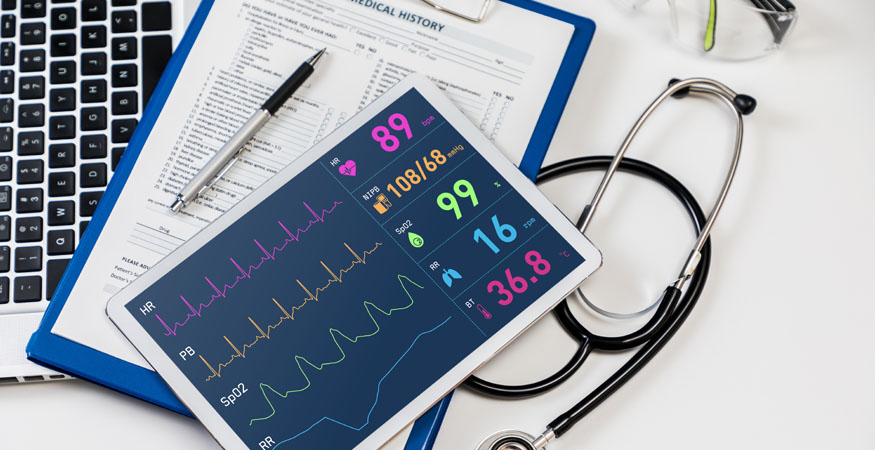Healthcare and other organizations who handle patient data must comply with HIPPA regulations. This includes patient data shared through all forms of communication including phone, messaging and print.
Today, many small- to medium-sized healthcare-related organizations are switching from landline phone systems to cloud-based unified communications platforms, such as Managed Voice Services.
But not all unified communications platforms are alike. When evaluating a platform, be sure to dive deep into the details of the platform’s ability to increase team efficiencies, support the achievement of HIPPA compliance and provide reliable communications.
RELATED ARTICLE: 9 Top Benefits of Unified Communications
What is HIPAA?
The Health Insurance Portability and Accountability Act (HIPAA) Privacy Rule establishes national standards designed to protect patient medical records and other individually identifiable protected health information (PHI) from being disclosed without the patient’s consent or knowledge.
Organizations or individuals who violate this rule could face stiff financial fines and possible imprisonment.
What is Managed Voice Services?
Managed Voice Services (MVS) is another name for a unified communications platform. MVS combines an organization’s chosen preference of communication channels into one bundled, unified, cloud-based platform which is managed and monitored by a service provider.
A Contact Center module is a feature commonly added on to a MVS platform to more effectively handle larger call volumes.
Managed Voice Features for Operational Efficiency
MVS platforms each have their own unique features. However, here's some excellent productivity and efficiency boosting features to look for when evaluating your choices.
Unified Interface and One Login: A great MVS platform will have a truly, unified interface constructed to require logging in just once at the beginning of your shift, in order to access all of your communication channels. No need to hop between systems for chat, voice, video conferencing and file collaboration. Save time and increase productivity!
Desktop and Mobile Apps: MVS platforms allow users to make and receive calls, join video meetings and answer chats from any device. Just install the app on your desktop and mobile device, securely connect to the internet and log in to the system. Many organizations have even implemented a BYOD policy as employees are increasingly adopting a hybrid work schedule.
Screen Sharing: Call a collaboration meeting from anywhere! Video meetings with screen sharing allow colleagues to view a document and make changes in real time.
Virtual Voicemail: Too noisy to hear a voicemail message? No problem. Virtual voicemail transcribes a message, automatically! Need to forward the message to another user? All it takes is a few clicks.
File Collaboration Co-Editing: This is an excellent way to boost productivity! Your documents live securely on the cloud, where multiple approved users can edit at the same time and files are backed up for safety.
Healthcare Organizations and Managed Voice with Contact Center Capabilities
Many MVS platforms have the ability to include a Contact Center. However, MVS platforms with advanced Contact Center capabilities have the ability to integrate with leading EHR platforms, creating more efficient call routing and personalized patient communications. Here’s how:
Assisting Patients
- Healthcare employees get an automatic EHR popup for inbound patient calls.
- EHR integration provides instant access to patient data. No switching of systems needed during a call.
- Use the onscreen EHR patient data to quickly verify the caller’s identity.
- Reduces call handle time.
Engaging With Patients
- Patients can self-serve with Interactive Voice Response (IVR) call options, including:
- Managing their appointments
- Paying bills
- Refilling prescriptions
- Create automated workflows based on information stored in the EHR.
- Self-serve feature reduces call volume.
Notifying Patients
- Call Center software can be programmed to send automated, outbound, two-way notifications based on real-time EHR events.
- Patients can receive reminders about:
- Appointments
- Bills
- Prescription refills
- Automated notifications increase medical adherence and shorten revenue cycle.
Managed Voice Services and HIPAA Compliance
Security is key as conversations need to remain private and patient data must be protected to ensure HIPAA compliance. When evaluating MVS partners, look for a provider who emphasizes HIPAA-compliant best practices that ensure:
- Access restrictions to PHI
- Monitoring of PHI communications
- PHI integrity at rest
- Complete message accountability
- PHI protection from unauthorized entry during transit
Reliability of Managed Voice Services
Reliability plays a huge role in workflows. If your communications platform has quality issues or frequent outages, employee productivity could suffer and negatively impact customer experience. Don’t take that risk. When comparing platforms, do your research and ask about a solution’s uptime, redundancy and business continuity plans.
Your All-In-One Communications Solution
Elevate Managed Voice Services takes organizational communications to a new level. Contact the Gordon Flesch Company to learn more about our cloud-based unified communication platform with Contact Center functionality. This innovative platform will enable your in-office and remote employees to efficiently answer calls, prioritize queries and route callers to the proper resource.
If you have an on-premises phone system, take a look around and discover the pricey hazards keeping you from charting a path to greater savings and organizational performance. Click the link below to download the infographic and chart a path to smooth sailing designed to reel in your communication costs.










